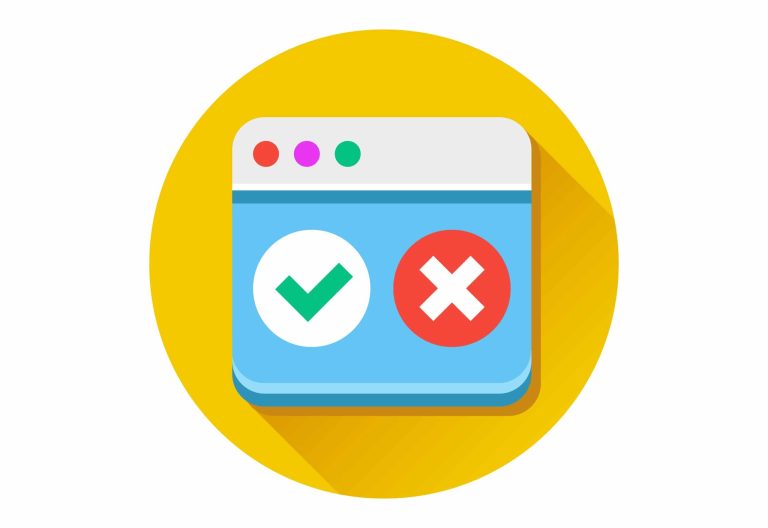I think it’s pretty safe to assume that there are a lot of things in the world that you (and I) don’t understand. We hire accountants, lawyers, doctors, dentists, mechanics – all because they spent years studying and practicing to thoroughly understand their craft more than we could ever hope to.
You have your own specialty as well. It’s what you’re good at, that’s why you started your own business. Whether it was so you could practice it day-to-day, or you could bring your unique approach to the world via a team you manage.
As part of that journey have you ever had a customer/client/patient tell you how they want you to do the job? Have you ever felt that you were completing the job to please the customer, but knew deep down it was the wrong way to do it? Have you ever witnessed people make bad decisions because they incorrectly thought they knew everything they needed to know to make a good decision?
I’m sure you have, we all have.
These people exist, usually because they need to be in control. They often refuse to accept your recommendations, either preferring to do it the way they think is best, or, wanting you to give them years of in-depth knowledge in one phone call.
See, here’s the (not so) big secret.
Professionals exist for a reason
Let’s face it – you are probably not an expert in all things.
It’s not a case of the expert having a tantrum and saying “I’m right and you’re wrong,” even though that’s very likely true, but an expert who takes their profession seriously won’t be happy doing something they strongly believe to be the wrong thing.
Professionals exist because they’ve dedicated years of their life to studying and practicing their area of expertise. In this information era I can easily go watch a YouTube video on how to fix a flux capacitor in my car, then go to a mechanic and tell him how I want it done – it still doesn’t make me right…
Which raises the question – when is a little bit of knowledge a dangerous thing?
When the mechanic tells you that you were watching fan faction for Back To The Future you can choose to say “clearly you’re a terrible mechanic, I’ll take my business elsewhere” – or you can accept he knows more than you, and let him do his job.
This is the line. Trying to be in control vs trusting it to an expert. They’re eventually going to find a mechanic who smirks and says “Sure thing, I can get that fixed for you within the hour”.
A little bit of knowledge can be a dangerous thing but used correctly it can help you.
The good kind of knowledge
How do you educate yourself for the benefit of your business without stepping on the professional’s toes? Educate yourself so you can pick professionals that you can trust. It’s not a bad thing to have an understanding/comprehension of where you’re putting your trust and your money.
The dodgy mechanic can easily woo you with confusing jargon and overcharge you for work you didn’t need done. So you can either be entirely blindly trusting – which, let’s face it, can be dangerous in this world. Or you can start to educate yourself so you can better spot a fraud when you see one.
Work with somebody that you trust
This is probably the hardest piece of advice to give, because how do you know who you can trust? Especially if you’ve been let down before by another business.
There is one essential component to a successful working relationship with a professional, and that is trust.
If you can’t give that person your trust, it will not turn out well. Keep looking for someone who clicks with you, if something seems off then follow your instincts but when you find someone you want to work with, you need to loosen the reigns to let them work their magic.
A lack of trust in a relationship means you’re always going to be looking for the mistakes, focused on the negatives and not the positives. You’re expecting to get let down, and that changes your behaviour.
- You don’t expose yourself fully, holding some cards close to your chest
- You second guess their every decision
- You will be looking short-sighted and not at the big picture
- You focus on the features of what they’re offering and not the benefits
- You won’t prioritise the relationship appropriately, causing delays
All of these behaviours create a toxic relationship, the professional you’re working with will pick up on these things and won’t be able to do their job properly. If they can’t do their job properly and can’t talk to you freely because you’re holding back, then it’s a slow-moving train wreck.
Sell them what they want, give them what they need
Ever heard that saying?
It’s an ethical grey area, one that I’ve avoided in my own business. I’m not comfortable giving false expectations and promises, even if my intentions to “deliver” are good. Plus on the rare occasion I did give in to this motto, the relationship was only ever short lived anyway.
When a controlling client does come to you, it’s very easy to spot their incorrect thought process and, in turn, take their money. “Sure thing mate,” the mechanic says, “I’ll get that flux capacitor fixed for you straight away – it’s a quick job.” Customer is happy, mechanic is $300 richer, it’s a win win right? I guess that depends where you draw the line as far as ethics go.
This is the danger of trying to be an expert, you can easily be taken advantage of. You leave trust aside, because you’re calling the shots and you know what’s best – little do you know you’re probably getting ripped off.
Ask questions, be informed, not an expert
It’s good to have a little bit of knowledge about everything, provided you’re of a mind to understand the knowledge you’re seeking. Some people are good with technical things, numbers, words, visuals, etc – we’re not all created equal.
If you’re not someone who grasps numbers and complex legislation, then probably leave it up to your accountant.
This comes back to trust, in areas where you’re not able to understand (or even be informed) then trusting your professional is the only thing left to do.
The problem I most commonly see in this area is that people want to be in control of things, so they seek the knowledge to make these decisions. Without the years of knowledge and experience they make bad short-sighted decisions, then point the finger at the person who “gave them the information”.
Know when to put your hands up and say “that’s all above me – you do your thing”.
It can be hard to let go of some parts of your business, perhaps it’s something that you used to do yourself, or perhaps it’s just an area that’s really important to you and you obsessively want to ensure it’s being done properly. But give the experts a chance to do their job and you could be happily surprised.
Have you dealt with controlling clients? How did you manage the relationship? Tell us in the comments below.





![Inbound Marketing 2016: What it is, and why you need it [infographic]](https://skyrocketmarketing.com.au/wp-content/uploads/2023/07/inbound-marketing-2016-768x469.jpg)
